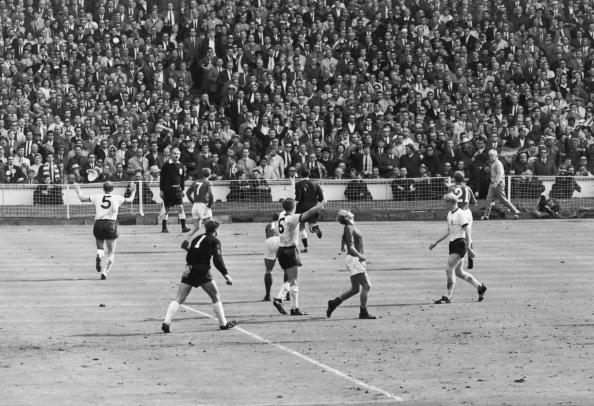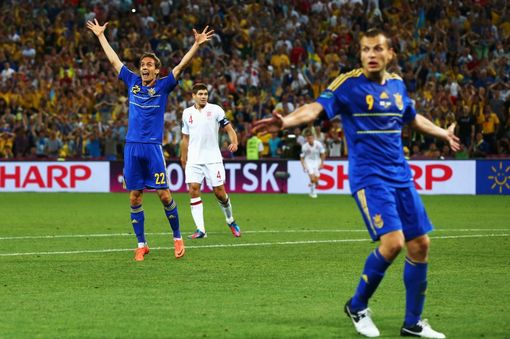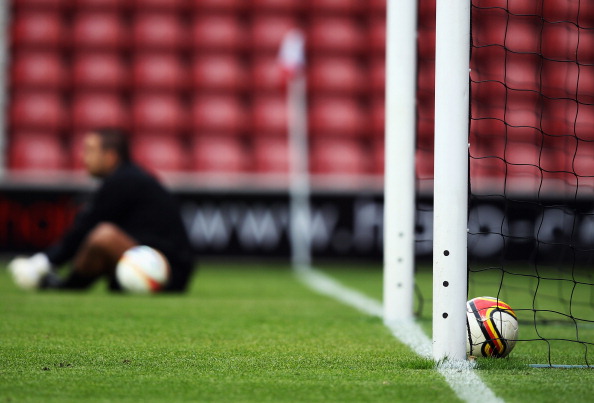By Andrew Warshaw in Zurich
July 5 – After years of foot-dragging, the International Football Association Board (IFAB), the game’s lawmakers, finally gave the go-ahead here today to goal-line technology following a global clamour by fans, players, managers – and even a majority of officials.
Almost half a century after Geoff Hurst’s controversial goal (scene pictured below) helped win the 1966 World Cup for England and following a spate of similar incidents in recent years, the guardians of the sport finally recognised the time has come to assist referees with scientific aids and prevent any more game-changing blunders.
“Its a great day for football,” said Alex Horne, general secretary of the English Football Association after a unanimous decision by the IFAB which comprises FIFA and the four British associations.
“It’s a hugely important day.
“The cause had been on our agenda for a number of years.”
The ultra-conservative IFAB had repeatedly stepped back from the brink in terms of allowing technology, but were convinced that both methods which have undergone rigourous testing – the camera-based Hawk-Eye system, used in cricket and tennis, and GoalRef, which uses a magnetic field – are foolproof and can decide within one second whether a goal has been scored without holding up play.
Subject to a final seal of approval wherever they are implemented, both systems will first be used at December’s FIFA Club World Cup in Tokyo and then, if successful, at the 2013 Confederations Cup before, crucially, the 2014 World Cup in Brazil.
Before any of those though, the English Premier League could be pioneers of goal-line technology, with possible implementation by the middle of next season.

At a news conference following a three-hour special meeting of the IFAB at FIFA headquarters, Horne confirmed that the Premier League could be among the first to use one or both systems after what he hailed was an historic decision.
“My understanding is that clubs are supportive and, in principle, as long as all clubs agree it could be introduced part-way through the season,” said Horne.
FIFA President Sepp Blatter, once strongly against goal-line technology, changed his mind following Frank Lampard’s disallowed effort against Germany in the 2010 World Cup.
Blatter is now a firm advocate of technology being in place before the next World Cup in Brazil and reiterated that stance after Ukraine were denied a perfectly good goal against England in their final group game of the 2012 Euro 2012 when John Terry (pictured below) hooked the ball back into play when it was already over the line.
“We have seen that two systems can work with 99 percent security,” Blatter said in a television interview after today’s landmark ruling.
“We can never have 100 per cent guarantees but the objective of football is to score goals.
“If we have the possibility to help the referees, we should.”

While Wales and Northern Ireland were initially against goal-line technology, they are now firmly on board after the unanimous ruling.
“This is an historic decision that will resonate around the world,” said Patrick Nelson, chief executive of the Irish FA while his Welsh counterpart Jonathan Ford said it was a “momentous” move.
“Over the past few years there have been a number of occasions where mistakes have clearly occurred in football,” said Scottish FA chief executive Stewart Regan.
“Anything that can assist the referee in making the correct decision has to be good.
“It is an historic day for football.”
Although today’s ruling will be condoned by almost all the game’s stakeholders, it will be a bitter pill to swallow for UEFA President Michel Platini, a fierce opponent of goal-line technology who favours the alternative scheme of an extra official behind each goal.
Platini believes it would be an “historical mistake” if technology replaces human judgement and that it would serve as a dangerous precedent in terms of spreading to video replays for other contentious decisions like offsides and penalties.

But the Frenchman suffered an embarrassing blow during England’s 1-0 win over Ukraine at the 2012 European Championships when the extra official, standing 10 yards away, failed to spot that Marko Dević’s (pictured above, left) shot was clearly over the line.
Platini did, however, win one concession yesterday when the IFAB also formally approved the introduction of his pet plan of two additional assistants.
Following two years of experimentation in the Champions League, Europa League as well as Euro 2012, competition organisers will now have carte blanche to run with whichever system they prefer.
Horne and his colleagues stressed that video replays were off limits for any other judgement calls than whether the ball has crossed the line.
“Goal-line technology is where it starts and finishes for us,” he said.
“None of us think technology interfering with the free-flowing nature of football is good for the game.”
Blatter agreed.
“As long as I am President, we will never allow technology to be used for anything other than goal-line incidents,” he said.
Contact the writer of this story at zib.l1745115569labto1745115569ofdlr1745115569owedi1745115569sni@w1745115569ahsra1745115569w.wer1745115569dna1745115569
Related stories
July 2012: Exclusive – IFAB look set to give goal-line technology the green light
July 2012: Postpone goal-line technology decision, urges UEFA
June 2012: Dević’s disallowed goal was an “unfortunate mistake”, says Collina
June 2012: Goal-line technology is no longer an alternative but a necessity, insists Blatter
June 2012: Andrew Warshaw – IFAB giving the OK to goal-line technology cannot come soon enough

